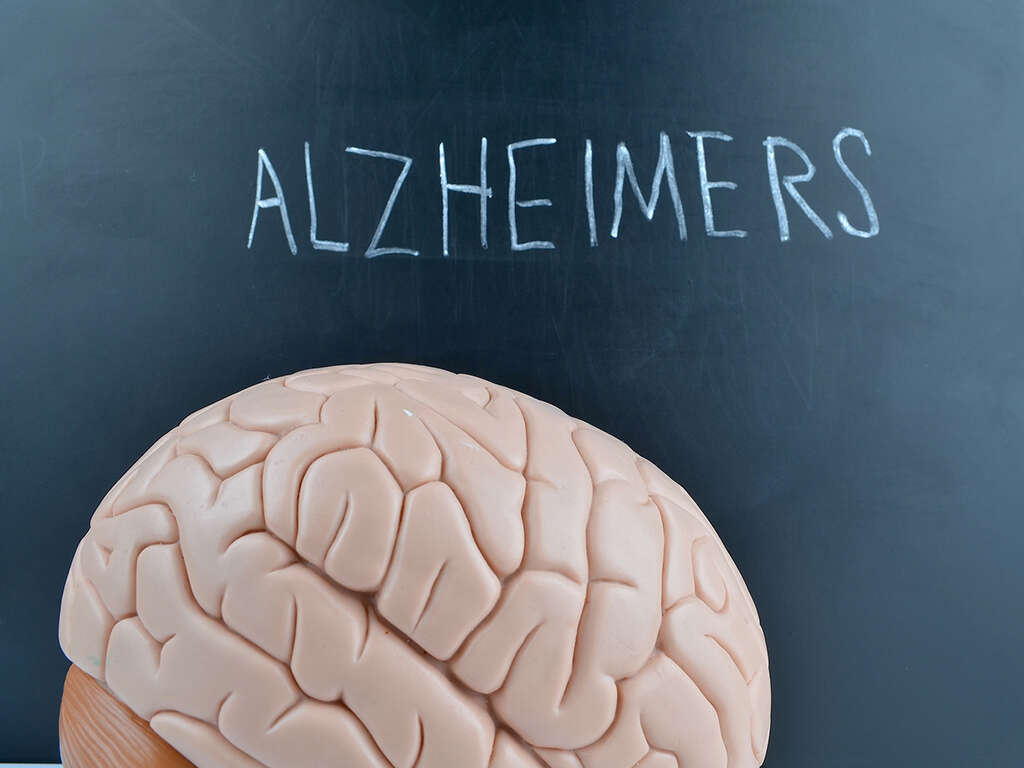10 Alzheimer's Symptoms
Many of us will find that our minds are not quite what they used to be when we were younger. We might find ourselves walking into a room and forgetting why, or have difficulty remembering people’s names.
It’s not uncommon but thankfully also not something that will have a serious impact on our lives. In some cases, though, it can have a very serious impact indeed.
Alzheimer’s disease is a neurodegenerative disease that causes increasing impairment of the functioning of the brain over time. We still have a lot to learn about the condition but treatment is ongoing. It can be devastating to the patient and their families.

Symptom #1: Memory
When we need to remember something it usually happens effortlessly to us. While we are likely to forget things over time, particularly less important events, we are generally quite good at remembering what we need to know. This ability can begin to fade with age, though, particularly among people that have Alzheimer’s disease.
A loss of memory is perhaps the most common symptom of Alzheimer’s disease. Patients will begin to forget the occasional thing from time to time, such as going to an appointment or turning the oven off. The patient will generally lose their ability to remember in the short-term, while still retaining their ability to recall long-term memories.

Symptom #2: Poor Judgement
We are quite often faced with scenarios where we have to make decisions. These will often be minor decisions such as what to have for dinner, but they can also sometimes be more serious. Usually, most of us will have a sense of judgement that will help us to make a reasonable decision on the matter at hand.
This can become increasingly difficult for people with Alzheimer’s though. They might begin to struggle to make the right judgement call when it comes to what to wear, for example. Perhaps they have been making the wrong calls at work, and maybe they have been struggling to cope with financial matters.

Symptom #3: Finding Words
Our vocabulary range tends to be somewhere between an astonishing 20,000 – 30,000 words. What’s more is that when we are speaking, we tend to recall the words we need without even having to think about it. This allows us to have discussions with each other and make it clear to others exactly what we mean.
A common symptom of Alzheimer’s disease, however, is the gradual inability to find words. This can even happen to highly intelligent people that usually have a particularly large vocabulary range. It can make it difficult for them to communicate, and this can be very frustrating for the patient.

Symptom #4: Difficulty Planning
It is important to make plans. It helps us to keep organized and can help us to achieve sometimes impressive feats. Without a plan, even simple things can be so much more difficult to accomplish. People with Alzheimer’s, though, might find it difficult to create a plan at all.
Making a plan requires the need to focus on and process certain details, and this can be incredibly difficult for people with Alzheimer’s disease. Not only can they find it difficult to make a plan, but they can also find it very difficult to stick to a plan. This can make life quite a lot harder for them and can lead to mistakes.

Symptom #5: Loss of Interest
The world is a fascinating place, with so much to keep us occupied mentally. Even when at home we will usually have plenty to keep us interested. Whether it is reading, watching movies or just spending time with family, there is often quite a lot to look forward to. We are also sociable creatures and spending time with friends is usually important to us.
People with Alzheimer’s disease, however, will often find that they have no interest in taking part even in activities they once loved. They will lose interest in their hobbies and even seeing friends and family will no longer appeal to them.

Symptom #6: Confusion
We all get confused from time to time. It may be because we are faced with a particularly complex task. At other times, it might be because we are trying to approach something that is flawed and just doesn’t make sense. It could also occasionally just be down to us not being on the ball and perhaps in the need of a caffeine fix.
A fairly common symptom of Alzheimer’s disease is confusion. Even simple tasks can become confusing for the patient and they can struggle to understand just what is happening. They can even get confused by the time and places, and might even struggle to understand how they got where they are.

Symptom #7: Visual Changes
Everything that we see is information that the brain has presented to us from the information it receives from the eyes. This system is very effective in letting us know what is around us but it is not perfect. If the brain was to begin losing its functionality, then it can affect our ability to see no matter how healthy our eyes may be.
People with Alzheimer’s disease can begin to find that there are changes in how they see things. It can become difficult for them to distinguish one color from another, or maybe it is harder than before to judge how far away certain objects are. Even reading can become a difficulty to the patient.

Symptom #8: Simple Tasks Are Difficult
Much of what we do is done on a kind of biological autopilot. Once we learn a task, we can then often complete it time and time again without even having to think about it. This can include things like cooking, driving and simple tasks like washing the dishes. Patients with Alzheimer’s, however, can find that everything is increasingly difficult to achieve.
With even simple tasks becoming harder, people with Alzheimer’s can become increasingly dependent on other people. This can be extremely frustrating and even demeaning for them as they struggle to care for themselves. It can place a lot of pressure on the patient and the people around them.

Symptom #9: Repetition
When we have completed a task, we will usually cross it off the list and move on. At least until such a time that it needs to be done again. The same occurs when speaking with others and it is usually only necessary to ask questions or provide answers once. Unless we think we were not heard, of course.
A common symptom of Alzheimer’s disease is that the patient begins to repeat words or actions. They might ask the same question more than once in a discussion and not even be aware they have done so. They might also perform certain tasks such as washing, again without being aware that they have already done so.

Symptom #10: Mood Changes
While our moods can fluctuate, most of us have a general type of mood overall. Some people might be known as particularly happy people, for example, but that does not mean to say they are necessarily happy all the time. Our moods are often affected by events and people around us, while it can also be affected by illnesses such as Alzheimer’s disease.
It is quite normal for somebody with dementia to develop depression. Otherwise outgoing people can also become introverted while the opposite can also occur. They might also become aggressive quicker than usual, or suspicious or even become afraid faster than they otherwise would.











